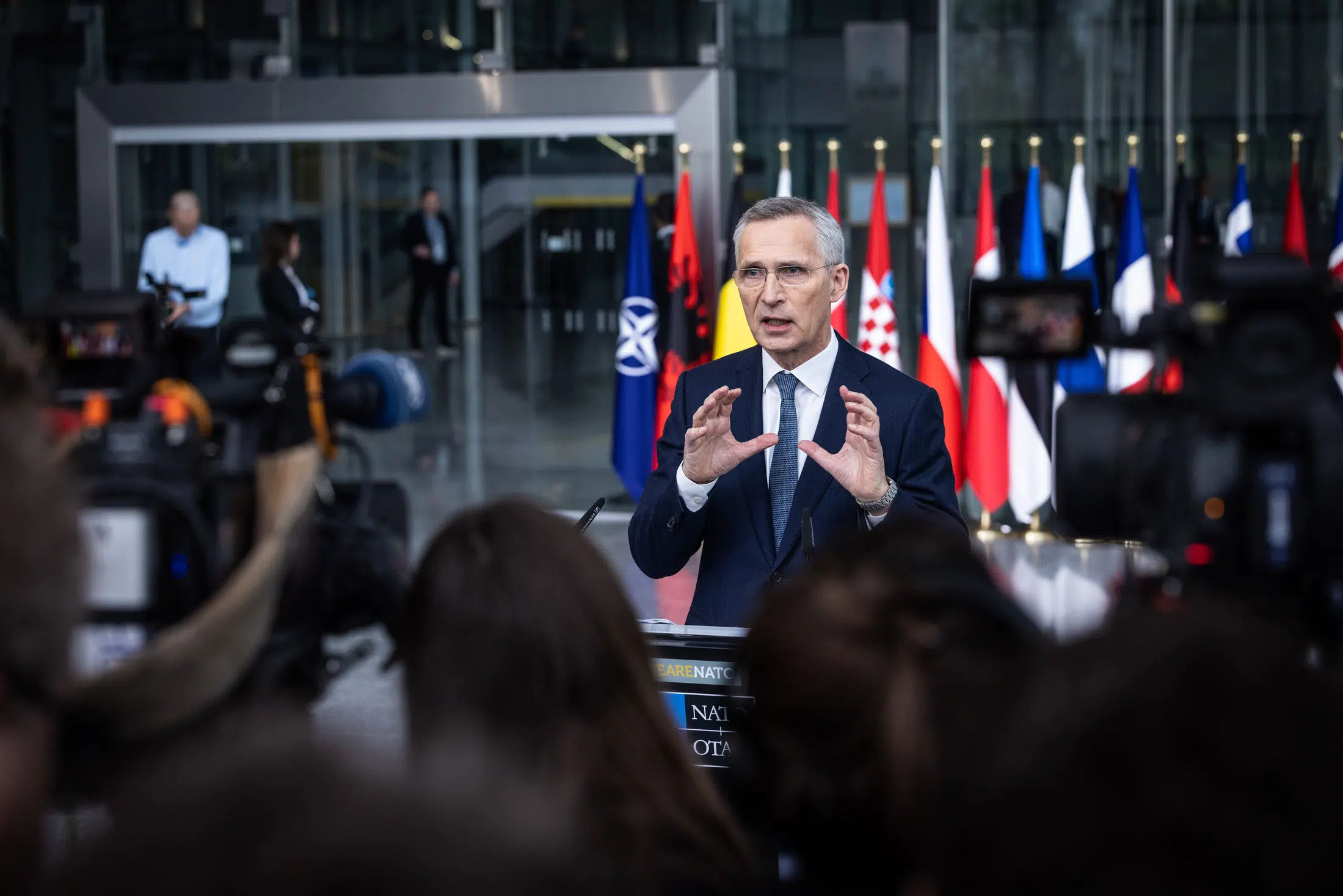Brussels – Emmanuel Macron‘s activism to turn the tide on Kyiv’s resistance against Russia’s invasion finds fertile ground and snatches the support of German Chancellor Olaf Scholz. “We think we should allow Ukraine to neutralize the bases from which the rockets are launched,” the French president said on behalf of the Franco-German axis. Paris and Berlin stand with NATO Secretary Jens Stoltenberg: it’s time for Ukraine to be able to use Atlantic Alliance weapons to strike military targets in Russia.
Macron, to convince public opinion of the need to make this decision, showed up at the joint press conference with Scholz with a map of the Russian-Ukrainian border, illustrating the bases from which Moscow’s attacks start, often located just behind the border, in Russian territory. Macron immediately clarified that “we should not allow” Kyiv “to strike targets other than those, I mean, of course, civilian targets or other military targets.”
However, Scholz is more cautious even though he supports the position of Paris. “Ukraine has every opportunity to do so in the framework of international law. We have to say it clearly. It is under attack and it can defend itself,” the German chancellor said. The two major EU powers confirmed the line Jens Stoltenberg outlined to the ministers of the 27 Member States at the May 27 EU Foreign Affairs Council. “This is a war, and according to international law, Ukraine has the right to defend itself. This also implies raids on military targets in Russia,” the NATO Secretary General stated without leaving any doubt.

It is a strong position of the NATO Parliamentary Assembly‘s green light to remove constraints on the use of assets and equipment supplied. The body composed of delegates from NATO countries voted overwhelmingly for the declaration, urging the 32 governments of the alliance to “support Ukraine in its international right to defend itself by removing some restrictions on the use of weapons provided by NATO allies to strike legitimate targets in Russia.”
At the EU level, however, there are still perplexities and fears about such a turn of events. Italy’s deputy prime minister, Antonio Tajani, made it clear that “all the military equipment we send to Ukraine must be used to protect Ukraine, within Ukrainian territory,” pointing out that “we are not at war with Russia” and criticizing Stoltenberg’s remarks because “sometimes a little more prudence is needed.” The EU High Representative for Foreign Affairs, Josep Borell, on the sidelines of yesterday’s meeting with the defense ministers of the 27 member states, noted that only “one country, maybe one and a half,” was pushing for the removal of constraints on the use of weapons on Russian territory.
Fears hover over Brussels of triggering further escalation with Putin’s unpredictable regime, as evidenced by the failure of the 27 Member States to agree on the possibility of training military personnel on Ukrainian soil. Some member states “believe this is about sending instructors, and instructors are military. One way or another, it would be sending non-combat troops, but in the end, they would be military agents on Ukrainian territory, with the risk that this certainly entails,” Borrell added.
In short, any move forward on the involvement in the conflict has to be weighed carefully. However, the Paris-Berlin axis may have the strength to reorient the positions of the 27 Member States.
English version by the Translation Service of Withub







